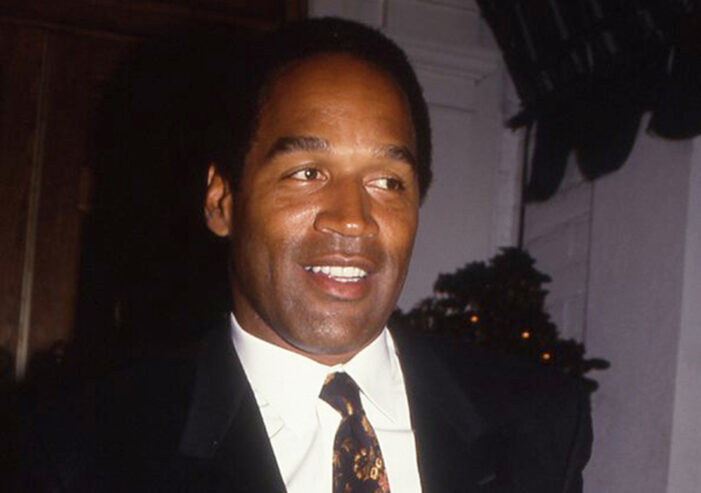Editorial credit: Vicki L. Miller / Shutterstock.com
By Chris Tobias
O.J. Simpson, born Orenthal James Simpson on July 9, 1947, in San Francisco, California, is a figure whose life and legacy are deeply intertwined with American culture and history. Simpson’s life is a tale of triumph and tragedy that traverses the heights of athletic success and plunges into the depths of infamy and controversy. He rose from humble beginnings to become one of the most celebrated athletes of his time. “On April 10, our father, Orenthal James Simpson, succumbed to his battle with cancer. He was surrounded by his children and grandchildren,” the family said in a statement posted on X. During this time of transition, his family asks that you please respect their wishes for privacy and grace.”
Simpson’s journey to fame began on the football field, where his exceptional talent as a running back was evident from an early age. He burst into the national spotlight during his college years at the University of Southern California (USC), where he won the prestigious Heisman Trophy in 1968, cementing his status as one of the greatest college football players ever.
His success at USC propelled him into the National Football League (NFL), where he continued to dazzle audiences with his remarkable athleticism and skill. Simpson He was drafted by the Buffalo Bills in 1969 as a No. 1 overall pick for the team and later played for the San Francisco 49ers, earning numerous accolades and setting records along the way. In 1985, he was rightfully enshrined in the Pro Football Hall of Fame, a testament to his unparalleled contributions to the sport. He was known to his fans as “The Juice.” According to NBC Sports, Simpson was the first player in the league to rush for 2,000 or more yards in a season and is considered the best running back of his era.
However, the events that unfolded off the field have come to define Simpson’s legacy in the public consciousness. In 1994, Simpson became embroiled in a legal saga that would captivate the nation and irrevocably alter the course of his life. He was charged with the brutal murders of his ex-wife, Nicole Brown Simpson, and her friend, Ron Goldman, a crime that shocked the world.
The ensuing trial, often dubbed the “Trial of the Century,” was a media spectacle, drawing widespread attention and igniting intense scrutiny of the criminal justice system. Simpson’s defense team mounted a vigorous defense, exploiting flaws in the prosecution’s case and raising doubts about the evidence presented. In 1995, to the astonishment of many, Simpson was acquitted of all charges in a verdict that sparked fierce debate and divided public opinion along racial lines.
Despite his acquittal in criminal court, Simpson’s legal troubles were far from over. In a subsequent civil trial, he was found liable for the deaths of Brown and Goldman and ordered to pay millions in damages to their families. The fallout from the trial tarnished Simpson’s reputation and plunged him into a downward spiral of personal and legal turmoil.
In 2008, Simpson found himself once again on the wrong side of the law, this time convicted of armed robbery and kidnapping in a botched attempt to retrieve memorabilia that he claimed belonged to him. He was sentenced to a lengthy prison term, serving nine years behind bars before being granted parole in 2017.
O.J. Simpson’s life is a cautionary tale of the perils of fame, the complexities of race and justice, and the consequences of one’s actions. His story is one of triumph in the field of play and tragedy in the court of public opinion. Despite his athletic prowess and accomplishments, Simpson will forever be remembered not only for his feats on the gridiron but also for the tumultuous and controversial chapters that unfolded beyond the stadium lights. May his soul rest in peace.

